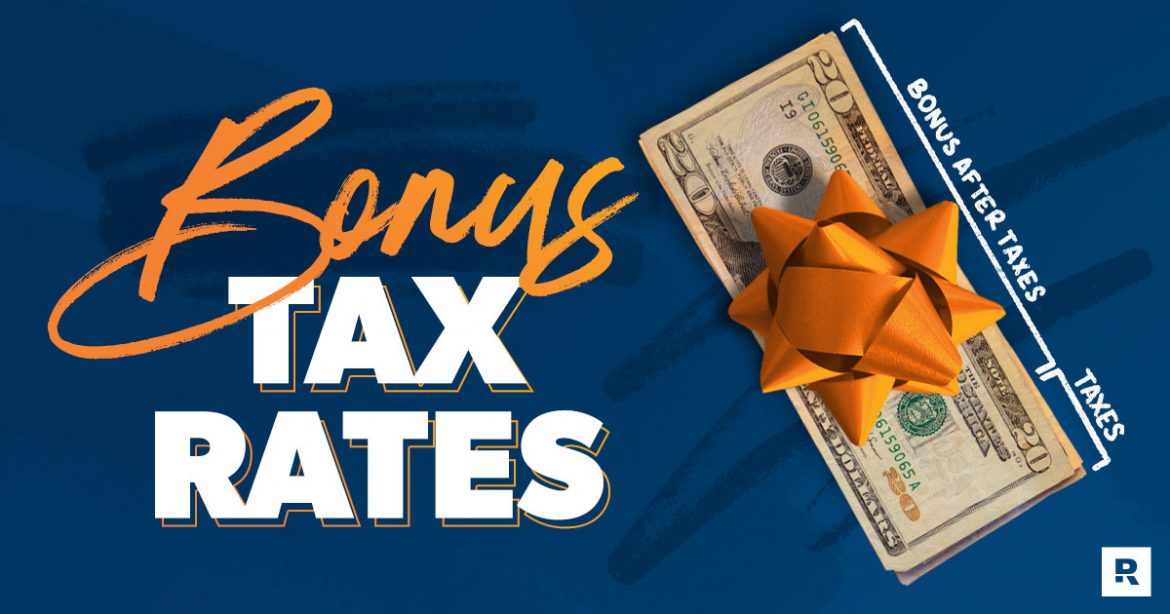How Bonuses Are Taxed
This is the very thing the IRS says regarding how it decides groupings of rewards and how expenses have an influence.
To start with, What Qualifies as a Bonus?
As indicated by the IRS, that reward of yours is thought of as “supplemental pay,” a classification that likewise covers commissions, extra time pay, prizes, and retroactive boosts in salary, and that’s just the beginning.
Supplemental pay is dependent upon a somewhat more tangled keeping design than your ordinary wages, contingent upon the amount of a reward you procure and the manner by which your supervisor scatters it.
How Normal Bonuses Are Taxed
Much of the time, a reward is paid and recognized independently from your standard pay by your manager — and all things considered, your boss can utilize two or three unique strategies to work out the duty hold back.
Choice 1: A level of 22% of your reward is held back. Basic — and decent, on the off chance that you bring in sufficient cash to place you in a higher level of pay generally. (However, not really pleasant assuming that you’re in the 10% or 12% sections.)
Choice 2: If your reward is added to a normal check, your boss can utilize the total technique, which is more confounded. Essentially, the saved portion for the complete checksum is determined as it typically would be per your level of pay and W-4 data, and afterward, your manager deducts the sum that would be kept on a customary check.
For example, in the event that you get a check for $4,000 — a $3,000 reward on top of your typical $1,000 compensation — your boss would compute the sum you’d be burdened for $4,000 in normal wages. Say that sum was $300, and you ordinarily see $50 of your $1,000 check held back. For this situation, your manager would deduct the $50 from the $300 to get a complete saved portion of $250.
How Bonuses Over $1 Million Are Taxed
Alright, this could sound unreasonable for the overwhelming majority of us, yet here’s the standard:
Assuming you acquire more than $1 million in supplemental wages, the first $1 million will be charged at the customary 22%, and afterward the rest of being burdened in your standard level of pay, which for this situation is 37%. Oof. However at that point once more, you’re procuring a 1,000,000 dollar reward, so perhaps you’re not that stressed over it.
How Non-Cash Extras and Perks Are Taxed
You may be believing you’re free in the event that you didn’t get a customary, single amount reward this year, however different advantages you have gotten could likewise be available.
These advantages are called incidental advantages and incorporate anything that adds esteem over your ordinary pace of pay: cash grants, fitness center participation, excursions, educational cost repayment, travel remuneration, and so on.
Essentially, assuming you get an advantage from your boss that offers a huge benefit and has a money comparable then it’ll be burdened. These available incidental advantages are charged at their honest assessment. For instance, assuming you’re given an excursion bundle that has a $2,500 esteem, you’ll be burdened as though you had gotten a $2,500 reward.
Educational cost repayment, notwithstanding, is a unique case. Educational cost repayment is tax-exempt for up to $5,250. On the off chance that your manager pays more than that, the first $5,250 is still tax exempt, yet anything over that will be burdened.
Your manager ought to follow along and present these additional advantages as available pay, however, it’s in every case great to monitor them yourself as you’re eventually the one liable to have an exact expense documenting
Why You Could Get Some of That Money Back
Recall whether your boss doesn’t determine that the additional money is a reward and simply generalizes everything with the likes of your customary compensation, it’ll be charged at a similar rate as your standard check would be, with practically no extravagant numerical gymnastics.
Furthermore, albeit the reward is dependent upon explicit expense rules when it’s paid when Tax Day comes, it’s dealt with very much like some other sort of pay. That implies you could procure a portion of your reward back as a discount assuming your assessment form shows a lot of was kept for your complete available pay level, in the wake of representing derivations and credits.
Regardless of how it’s burdened, a reward is fundamentally free cash you weren’t anticipating. Furthermore, you don’t need to stress over your reward catapulting you into a higher expense section, either — in light of the fact that regardless of whether it, just the cash over that section limit will be charged at the higher rate.
Despite the fact that it very well may be baffling to see a piece of that register vanish with the ether, center around the positive: the unexpected money implantation.


